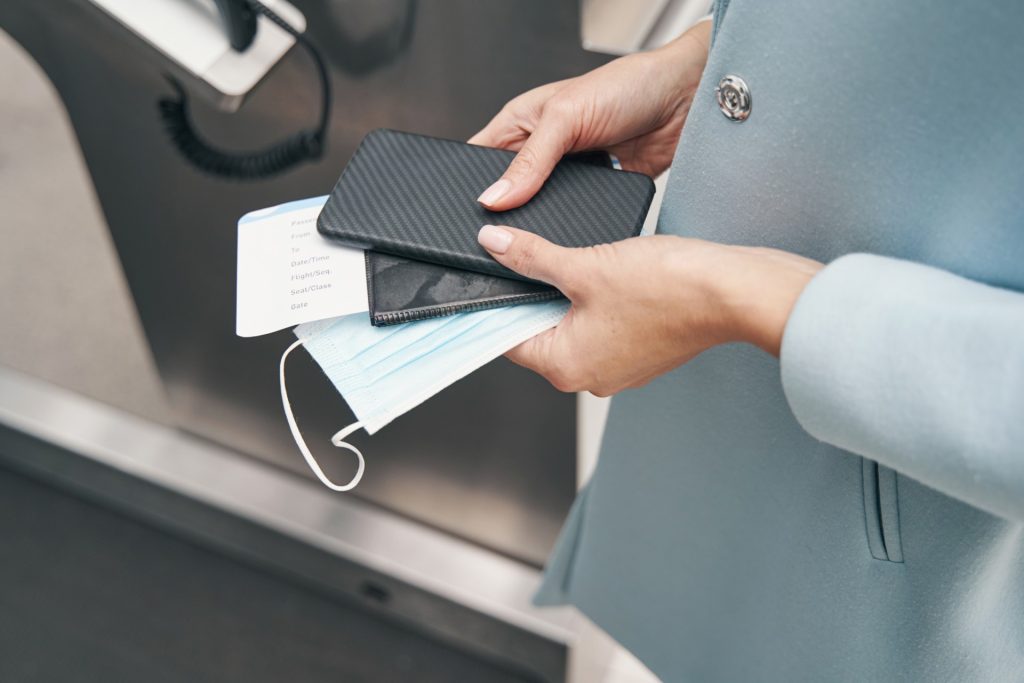To sign up for our daily email newsletter, CLICK HERE
Several factors influence the cost of RFID-blocking wallets, including the materials used, design features, brand reputation, and added functionalities. Here’s a closer look at these factors:
- Material Quality: RFID-blocking wallets come in a variety of materials, ranging from genuine leather and metal to synthetic fabrics. Leather wallets, particularly those made from premium full-grain or oil-tanned leather, tend to be more expensive due to their durability, craftsmanship, and long-lasting appeal. On the other hand, wallets made from synthetic materials or fabric tend to be more affordable but may not offer the same level of durability or style. Some RFID-blocking wallets, especially those manufactured in the United States, may carry a higher price tag due to the premium craftsmanship and domestic manufacturing standards involved.
- Design and Craftsmanship: The complexity of the wallet’s design also impacts its price. Minimalist wallets with fewer compartments are generally more affordable, while bifold or trifold wallets with multiple card slots, cash compartments, and additional features like a built-in bottle opener can be more expensive due to the added functionality and craftsmanship required.
- Brand Reputation: Well-known and luxury brands tend to charge higher prices for RFID-blocking wallets. These brands often emphasize quality materials, attention to detail, and stylish designs, which can justify a higher price tag. However, there are also many lesser-known brands that offer excellent RFID protection at more affordable prices.
- RFID-Blocking Technology: The effectiveness of the RFID-blocking material used in the wallet can also influence its cost. Higher-quality RFID-blocking wallets use advanced materials, such as metal alloys or carbon fiber, that provide reliable protection against skimming devices. Cheaper wallets may still offer RFID protection but may not have undergone the same level of testing or certification.
- Additional Features: Some RFID-blocking wallets come with added features, such as money clips, coin pockets, detachable wrist straps, or multi-functional tools like a built-in bottle opener. These extras can increase the wallet’s cost, but they also enhance the wallet’s overall convenience and utility.

Price Range for RFID-Blocking Wallets
Here’s a general breakdown of the average cost of RFID-blocking wallets, categorized by style and material:
Basic Minimalist RFID-Blocking Wallets: Price Range: $10 to $30
Minimalist wallets are designed to be compact and lightweight, typically holding just a few cards and some cash. They are ideal for those who prefer to carry only the essentials. These wallets are often made from synthetic materials, fabric, or lightweight metals and are among the most affordable RFID-blocking options. Though lower in cost, they still provide adequate protection against RFID skimming.
Mid-Range RFID-Blocking Bifold or Trifold Wallets: Price Range: $30 to $80
Bifold and trifold wallets are more traditional in design and offer multiple compartments for cards, cash, and coins. They often feature high-quality materials like genuine leather, including oil-tanned leather, and have a more refined look. These wallets typically provide reliable RFID protection and are a popular choice for those who want both style and functionality without breaking the bank.
Premium RFID-Blocking Wallets: Price Range: $80 to $200+
Premium RFID-blocking wallets are often made by luxury brands and feature top-tier materials such as full-grain leather, carbon fiber, or metal. These wallets may include advanced design elements, superior craftsmanship, and additional features like detachable money clips or a built-in bottle opener. They are designed for customers who prioritize both fashion and security, making them a long-term investment.
RFID-Blocking Passport and Travel Wallets: Price Range: $20 to $100
Travel wallets and passport holders with RFID protection tend to vary in price depending on the materials and features. Basic versions made from synthetic fabrics or nylon fall on the lower end, while leather travel wallets with additional compartments for passports, boarding passes, and travel documents are priced higher. Many frequent travelers opt for mid-range or premium versions for their added durability and functionality.
What Should You Expect for the Price?
When shopping for an RFID-blocking wallet, it’s important to understand what you’re getting for the price. Here’s what you can typically expect at each price point:
- Under $30: You’ll find minimalist wallets and sleeves designed for basic RFID protection. These are usually made from synthetic materials or lightweight fabrics and provide a cost-effective way to secure your cards.
- $30 to $80: In this range, you’ll find a variety of leather wallets, including bifold and trifold designs. These wallets tend to be durable, stylish, and provide reliable RFID-blocking capabilities. This is the sweet spot for most consumers looking for a balance between quality and affordability.
- $80 and Above: Wallets in this price range typically feature premium materials like full-grain leather or metal, and often come with advanced features like built-in bottle openers, money clips, and high-end designs. These wallets offer superior craftsmanship and are ideal for those who want a luxury wallet with enhanced security.
The cost of an RFID-blocking wallet can vary widely depending on factors such as material, design, brand, and added features. On average, you can expect to pay anywhere from $10 for a basic minimalist wallet to over $200 for a premium leather or metal wallet with advanced features. When shopping for an RFID-blocking wallet, it’s important to consider your budget, personal style, and the level of protection you need.
While more expensive wallets often offer higher-quality materials and additional functionality, even affordable options can provide effective protection against RFID skimming. By understanding the factors that influence price, you can make an informed decision and choose a wallet that fits both your security needs and your personal style.